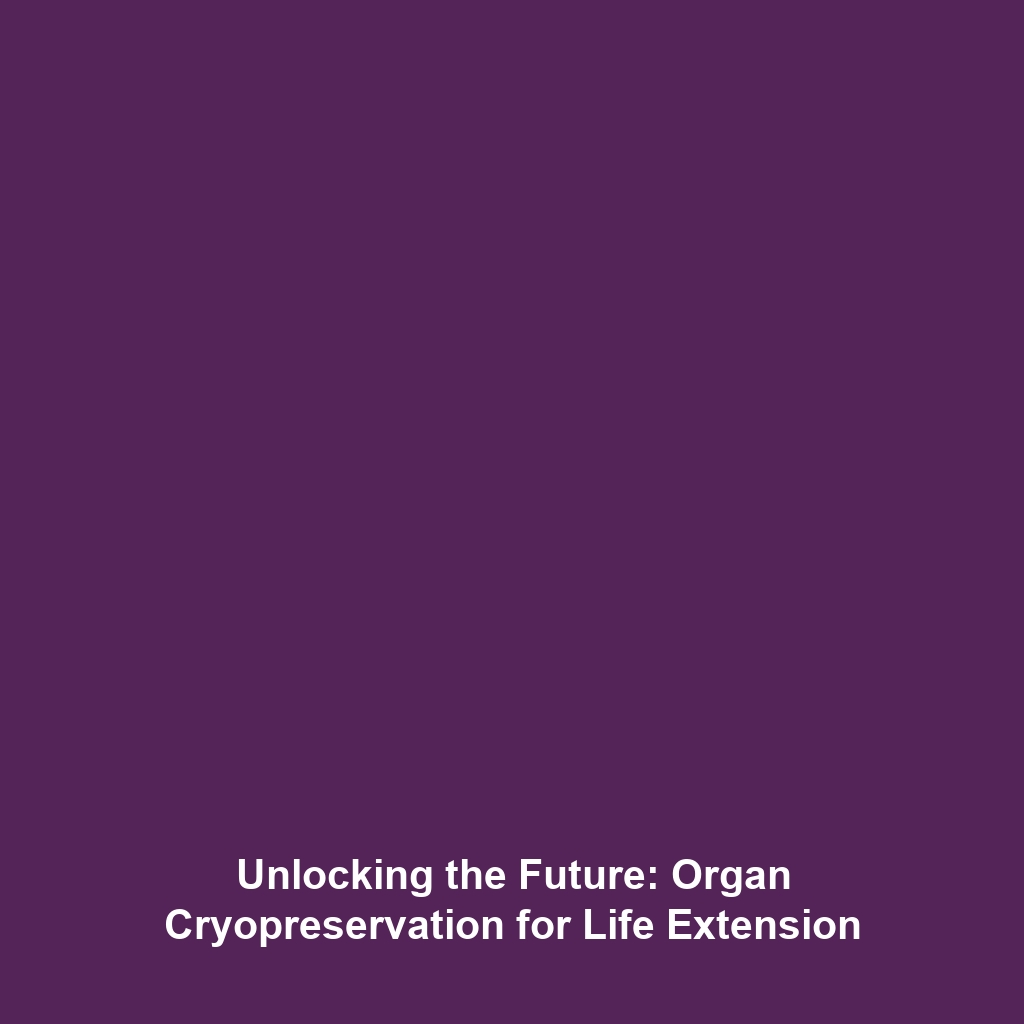The Moral Implications of Attempting to Extend Life Indefinitely
The ethical considerations surrounding the pursuit of indefinite life extension are profound and multifaceted. As advancements in cryonics and life extension technologies emerge, society is left to grapple with questions about morality, resource allocation, and environmental sustainability. The debate on whether it is ethical to attempt to extend life indefinitely invites diverse perspectives and raises critical issues that require thorough examination within the broader context of human existence and societal progress.
Key Concepts
Understanding the moral implications of extending life indefinitely involves several key concepts connected to cryonics and life extension:
- Value of Life: The intrinsic worth of human life raises questions about the purpose and quality of life when extended indefinitely.
- Resource Allocation: With longer lifespans, the strain on resources such as food, healthcare, and housing may be exacerbated.
- Environmental Impact: Extended life could result in increased consumption and pollution, further straining the planet’s resources.
- Societal Structures: The potential for an aging population to dominate workforce positions could alter societal dynamics and promote inequality.
Applications and Real-World Uses
Understanding the moral implications entails exploring how these concepts apply in real-world scenarios. For instance:
- Healthcare Innovations: Technologies that may facilitate life extension can also enhance health quality, thus changing healthcare dynamics.
- Policy Development: Governments may need to adapt policies to address the implications of a significantly older population.
- Cultural Shifts: Acceptance and attitudes toward aging and death could shift dramatically if indefinite life extension becomes commonplace.
Current Challenges
While the discussion on the ethics of extending life is increasingly relevant, several challenges persist:
- Ethical Dilemmas: Questions about who qualifies for life extension technologies and the morality of prioritizing specific demographics.
- Resource Constraints: Concerns over finite resources pose significant challenges; a growing population could lead to scarcity.
- Regulatory Barriers: Existing laws may inhibit the advancement or accessibility of life extension technologies.
Future Research and Innovations
As research continues, potential breakthroughs in the moral implications of life extension may arise, such as:
- Biotechnology Advances: Innovations in gene editing and regenerative medicine hold promise for improving healthspan.
- Sustainable Solutions: Exploring methods to extend life while maintaining ecological balance will be crucial.
- Societal Studies: Investigating the societal impact of life extension technologies will provide valuable insights for future policy.
Conclusion
The moral implications of attempting to extend life indefinitely encompass a myriad of considerations that require thoughtful discourse. As technology progresses in the realm of cryonics and life extension, understanding these implications becomes vital for guiding ethical decision-making and societal norms. Engaging in this dialogue is essential as we navigate the future of human life and its sustainability. For further reading on related topics, consider exploring our articles on Cryonics Innovations and Ethical Concerns in Biotechnology.
